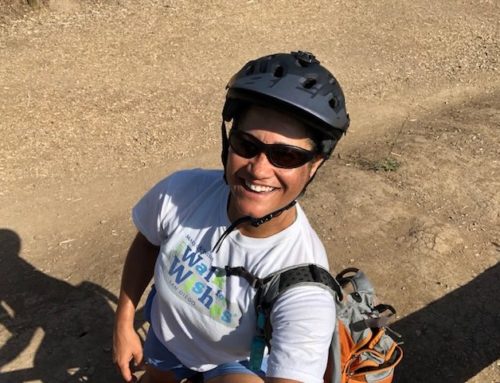Several of the people I met with this week are recovering from injuries, so I thought I would address that in today’s blog posting. While some injuries we have no control over, many others we can do something about simply by preparing well. By that I mean a combination of things like using progression rather than jumping right into a workout regimen; taking proper safety precautions like warming up thoroughly; and if you do notice the onset of a potential injury, take care of it rather than ignore it.
Whether you are undertaking a fitness routine for the first time or simply starting some new exercises or a sport that you haven’t done before, use progression and take small steps so that you don’t sustain an injury. Put aside any macho mentally and look at it like this: if you injury yourself in the process, you’re going to have to take time off and that will only set you back. You should always ease into a new routine making sure you fully understand what’s involved along with proper movement before increasing the intensity or longevity of a particular exercise. Since the given movement is new to your body anyway, it doesn’t take as much to respond the first few times, therefore you will get good results working at only a moderate level. After you have been at it a few times, then it’s all right to step it up a notch or two.
I know that when I was younger, I could get away with not warming up properly. But as we age it’s all-to-easy to injury yourself simply because your muscles are cold and therefore less pliable. In order to prevent many injuries before they occur, simply warm-up thoroughly by getting the blood flowing prior to any exercise. This holds true even if you think the exercise is easy. Remember, you’re certainly not doing yourself any harm by warming up, only good. For example, if you plan to run, start off by walking for a few minutes and then increase to running. If you are going to lift weights, do five minutes of cardio first. You should apply this principal to any and all exercise.
Most importantly, if you feel pain rather than fatigue, or even just a twinge that something isn’t right, stop. You won’t be doing yourself any favors if you push through it and sustain a serious injury that puts you out of commission for a week, or worse yet, a month. By listening to your body you can often prevent a serious injury before it happens. So the next time your low back starts to bother you, stop what you’re doing and think—are you using proper form? Is the exercise your attempting safe for you? If you can’t answer yourself with a definite “yes”, then you should stop where you are. If you did hurt or strain something, take care of it right away so that it will heal properly. That means possibly using ice, compression, or even going to see a doctor in some cases.
It boils down to just thinking logically about the tasks and endeavors you’re undertaking rather than just jumping in headfirst. Try to look at the big picture and you may save yourself a lot of stress and discomfort in the long run. The key to preventing injury is developing good, consistent and safe methods that you adhere to so that you can enjoy prolonged activity over a sustained amount of time.
Copyright © 2010 Optimum Condition. All rights reserved. Melissa Allen, CPT, BS, CES is a certified personal trainer, corrective exercise specialist and Medifast health coach, is the owner of the Optimum Condition Corrective Exercise & Performance Center, located in El Cajon, in the East County of San Diego. We specialize in customized fitness training and corrective exercise for both recreational athletes and post-rehab clients, as well as guaranteed weight loss programs or your money back. You can schedule a free consultation to help you get started. Please visit her website at OptimumCondition.org.





